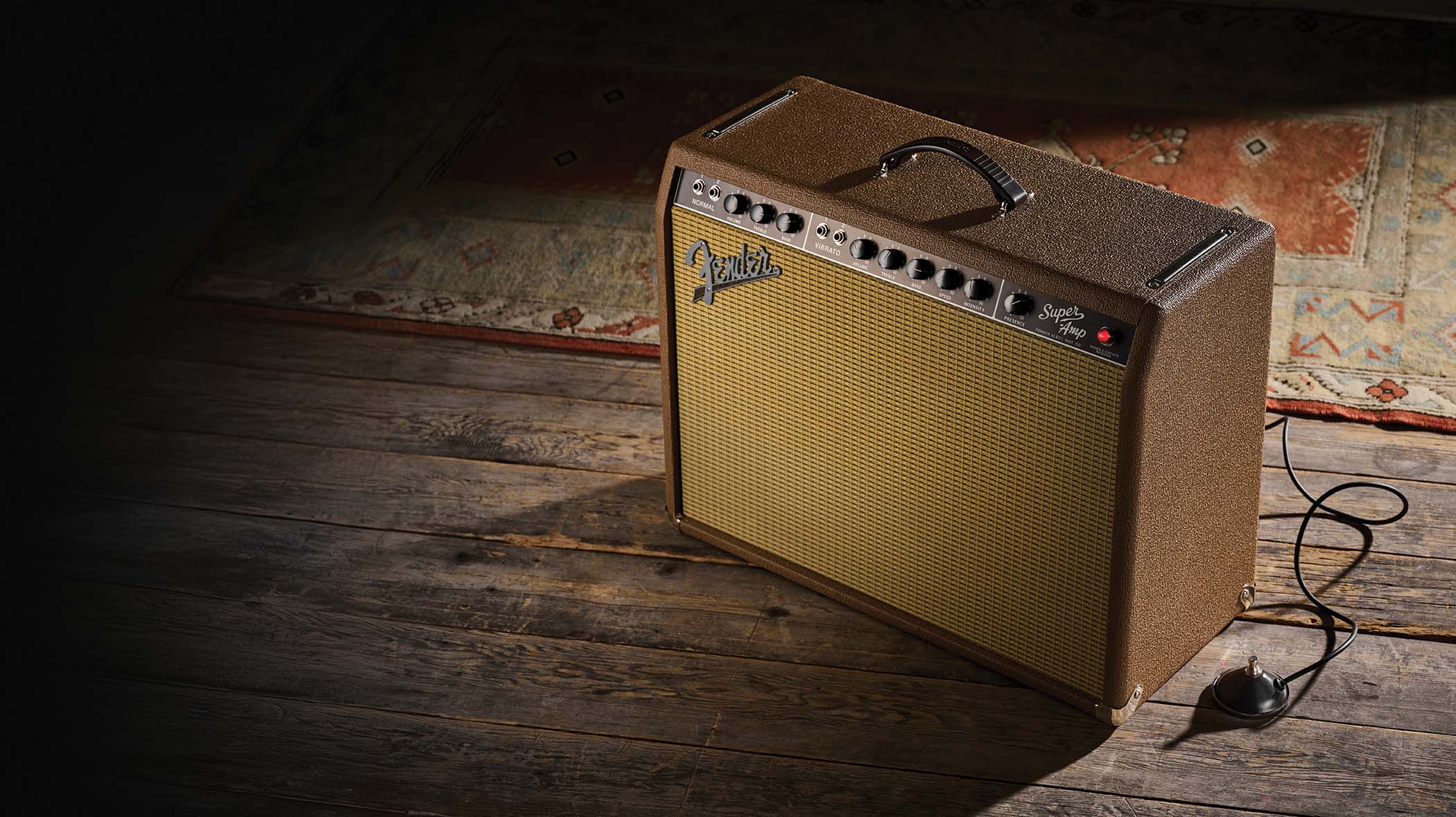“Whatever magic John brought to the Chili Peppers, I didn’t have that style of magic”: Dave Navarro was the odd man out when he replaced John Frusciante in the Red Hot Chili Peppers. But 30 years later, he has no regrets
Emerging from the wreckage of Jane's Addiction, Navarro turned down a spot in Guns N' Roses in favor of a band he felt more of a connection with. The resulting album, One Hot Minute, was polarizing, but the guitarist sees it as a “difficult but valuable” part of his career
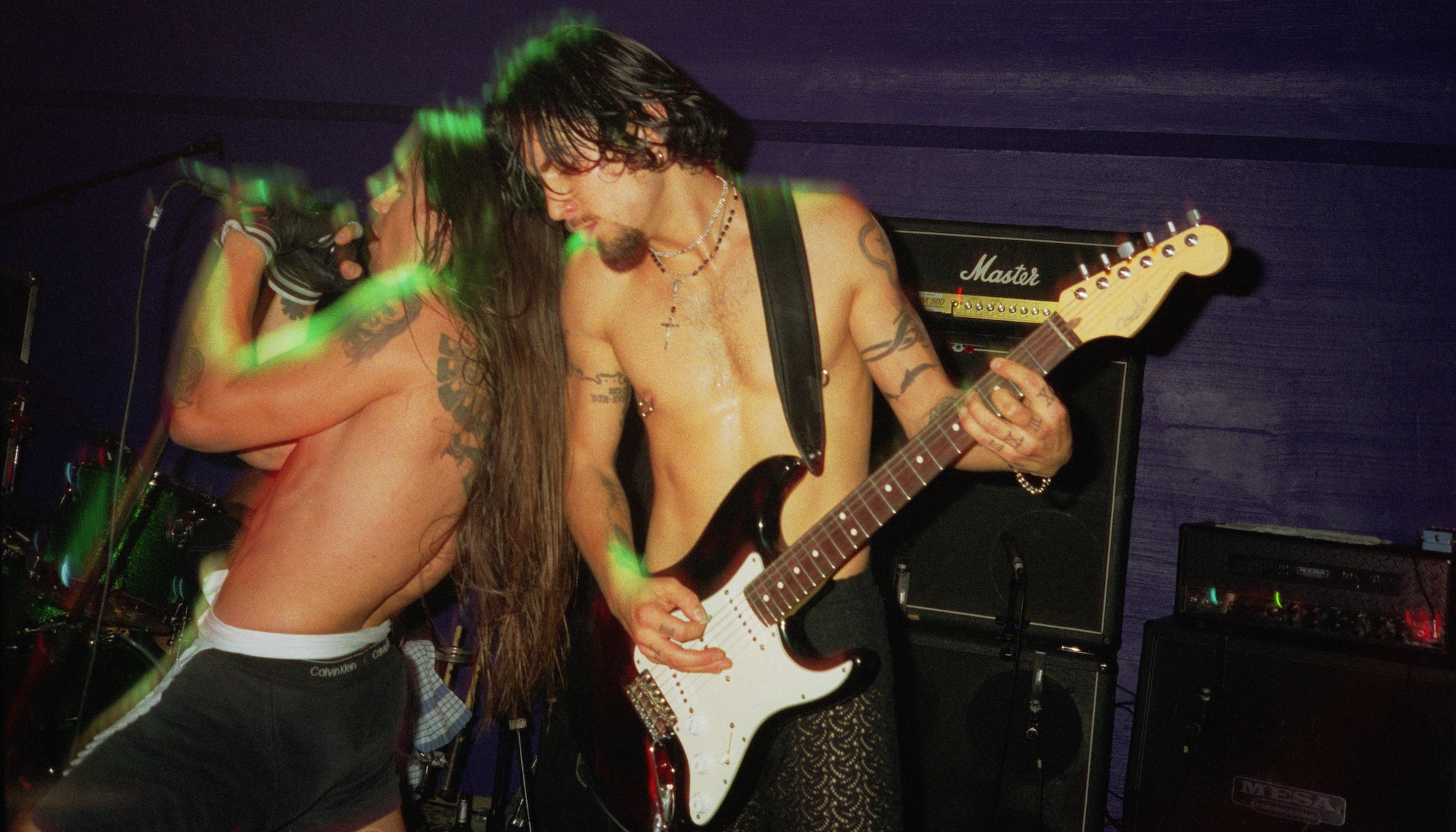
Dave Navarro was a certified guitar hero when he joined the Red Hot Chili Peppers in 1993. And while he cherishes his time with the band, he’s not sure he was the man for the job.
“Whatever magic John brought to the Chili Peppers, I didn’t have that style of magic,” he tells Guitar World.
Nevertheless, Navarro’s brand of magic did breed one spectacular, if not misunderstood, record in 1995’s One Hot Minute.
At the time, although the record went platinum, the perception was that it was an outlier, if not a failure.
Sure, songs like Aeroplane, My Friends, and Deep Kick showcase an amalgam of the Chili Peppers' funk leanings careening with Navarro’s metal instincts, but people didn’t get it.
“When it came down to it, I was a goth kid in a funk band,” Navarro laughs. “If you had to narrow down what the disconnect was, I’d say that would be it.”
And the disconnect wasn’t just with fans, it was also within the Chili Peppers’ ranks.
All the latest guitar news, interviews, lessons, reviews, deals and more, direct to your inbox!
“It became clear pretty fast that as much as we tried and as much as we wanted it to work, we weren't coming from the same musical place.”
This, along with the grief his bandmates dealt with after John Frusciante’s departure, left Navarro in a tough spot.
“I couldn’t help but feel like the odd man out in a lot of ways,” he admits. “We made a record and embarked upon a world tour, but I had very little history with these guys.”
“The best way I can describe it is that I was in a cover band with the actual band,” he laughs. “And that’s a very strange place to be – especially with the clashing of styles.”
The funny thing is, it was one of their least successful albums, but for me, it was the most successful record that I’d ever played on at the time
Though the Chili Peppers don’t perform One Hot Minute’s tracks much, time has been kind.
“I get a lot of people telling me how much they love that record – more than I’d expect,” Navarro says. “That’s pretty cool, but on the eve of release, the four of us covered our eyes, and were like, ‘Okay, let’s see what happens here.’ [laughs]”
Though he hasn’t listened to the album in decades, Navarro acknowledges One Hot Minute’s importance.
“The funny thing is, it was one of their least successful albums, but for me,” he says, “it was the most successful record that I’d ever played on at the time.”
“It certainly elevated my visibility as a guitar player,” he says. “Some moments from that record are some of my favorites from my career. But I really believe that when you listen to One Hot Minute, you’re listening to four guys trying to find who they are together.”
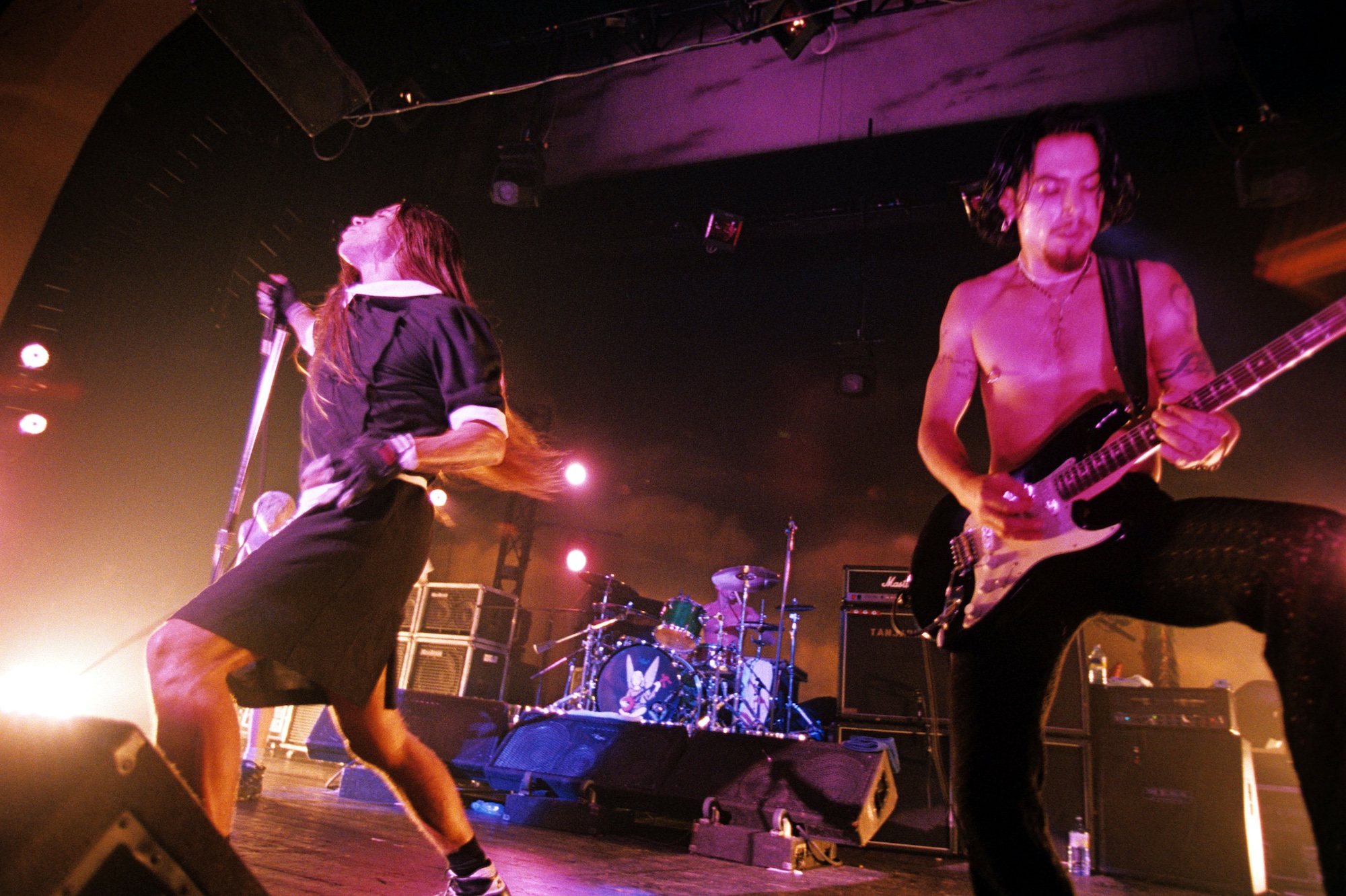
You came into the Chili Peppers after John left – and after they’d had huge success with Blood Sugar Sex Magik.
“I was a fan of the Chili Peppers, but it was more for their musicianship than specific songs, you know. Flea called me and asked me if I'd like to come jam with them. Back then, it wasn’t unheard of for friends to get together and play, so I really didn't think much more of it other than, ‘I'm just gonna play with these guys today.’
“I went down and played with those guys for a couple of hours, and they sat me down and asked me if I'd like to become a member of the band. I was working on Deconstruction with [Jane's Addiction bassist] Eric Avery, and didn't have plans to tour that record.
“So, since there were really no long-term plans for the Deconstruction project, and I had just passed on a Guns N’ Roses offer, I figured, ‘Well, these guys are more in line with the scene that I came from,’ and playing with Chad [Smith] and Flea intrigued me. I said, ‘Yeah, I'd be happy to.’”
With Jane’s, you played Les Pauls, Ibanez, and PRS guitars. But with the Chili Peppers, you needed to play Strats to cop what John had been doing.
“Since 1991, I was a Paul Reed Smith player. Once I joined the Chili Peppers, when it came to learning their back catalog to perform live with them, I really needed a single-coil sound. I really needed that Strat sound to emulate and be as authentic to the material as I could.
“I had to relearn my approach to guitar, musicianship, and how to communicate musically with these three individuals, who were very much a tight-knit unit. It was an overwhelming and daunting task. I did it because I loved the guys, the material, and their level of proficiency on their instruments, so it was a no-brainer for me.
“Along with that came my introduction to my thinking, ‘How am I going to make my style of playing work in this arena?’ That was a very tough transition because their sound didn't really call for what I naturally gravitated towards.”
Once you started working on One Hot Minute, a record that's dark in tone compared to the Chili Peppers' other records, were those challenges you mentioned weighing on you?
“Yeah, they were. My first guitar that I played growing up was a Strat. My inspiration to seriously play guitar was Jimi Hendrix. I was like, ‘Okay, that’s what he uses, so that’s what I’m gonna use. Then, I got into Jane’s Addiction, and I wanted a fuller sound that ate up more sonic space, so I moved to the Les Paul.
“But when I joined the Chili Peppers, it was a little too much. And when it came to reproducing the back catalog, and other players that were more single-coil guys, I needed a Strat.
“When it comes to funk, you want that percussive, thin sound, even if it’s dirty. And that was one area where we didn’t line up; I wasn’t necessarily a fan of funk stuff. I was more of a fan of rock, so it was a difficult transition for me.”
In many ways, I feel that record should have been the demos for that record
According to the liner notes, the tracks were written collaboratively, so there must have been elements of darkness elsewhere, too.
“I didn't necessarily write any of the songs on One Hot Minute; they were more collaborations. And I naturally turned to my effects and played a little bit darker.
“I naturally like to double things and had a way I liked to record. But that wasn't necessarily something that they had done a lot of in the past with their other guitar players, and certainly not with John.”
What was your perception of how it was with John?
“John was very altruistic and pretty much one take, one guitar, whereas I liked really big sonic soundscapes with more of a metal edge. And I think the addition of my approach to guitar playing is what you can hear on the record. And that record really is a documentation of the four of us trying to figure out who we were as a band.”
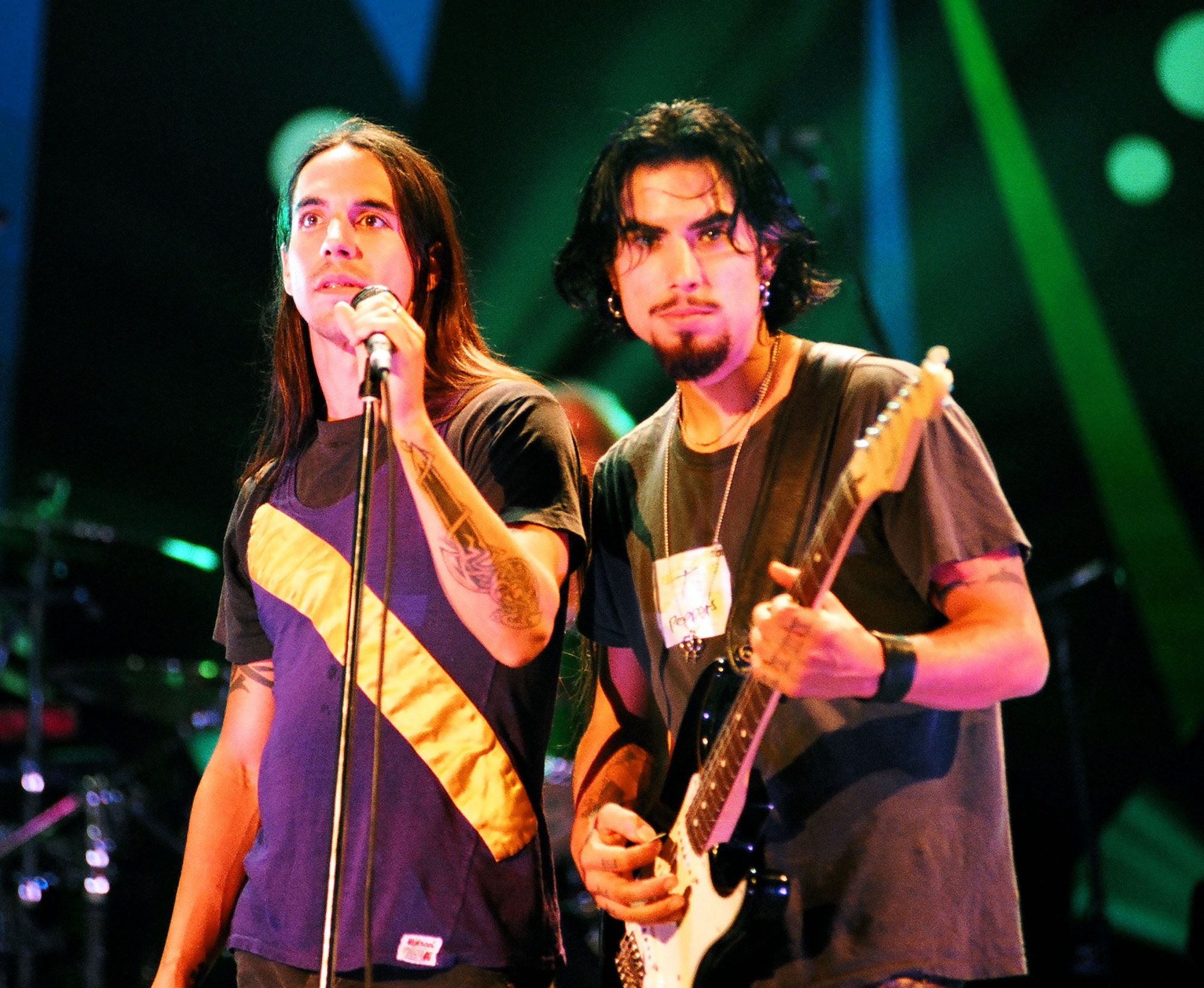
Did you feel that not having John there weighed on the rest of the band?
“Frankly, I don't really wanna speak for anyone, but I think losing John and having to kind of restart their band, I think the rest of the guys were undergoing a grieving process, you know? Having lost John like that, I think there was an accumulated sadness that went along with trying to make that record – especially after coming off of their biggest-selling record.”
That must have contributed to some of the darkness, too.
“They were such a finely oiled machine, and I can’t say it was a comfortable experience. It was really strange for me to have to jump into an environment where this unit had a way of doing things that was completely contrary to the way I was used to doing them.
“So, I look at that record as a documentation of us trying to find how we fit together. In many ways, I feel that record should have been the demos for that record. They were all brand new compositions that we hadn’t lived with, sat with, and played live.
“I feel like that record was a first pass at what could have been, and we never really got there. And then, without speaking out of turn, Anthony [Kiedis] covers this in his autobiography, so I’m not really revealing anything that isn’t public knowledge – and I’m very careful not to do so – but he was going through his own dark time personally.”
Can you remember what it was like putting together songs like Walkabout, Coffee Shop, and One Hot Minute?
“A song like One Hot Minute, or Coffee Shop, those kinds of songs are truly blends of completely stylistic approaches crammed into a single song. You can hear that. And some of my favorite stuff is a song like Walkabout; like, I’d never played anything like that, you know, the funk guitar. I really enjoyed doing that and exploring different musical spaces.”
Did Rick Rubin help you with stepping out of your comfort zone?
“Working with Rick Rubin was another hurdle that I had to overcome. He was very into few overdubs, live takes, and capturing the band as it sounded in the room – and he does that better than most. But when we’d be playing, I’d have in my head like four other guitar parts that I was planning on laying down, and they’d be like, ‘No, this is done.’
“But my approach to recording has always been to put down as many ideas as I can think of, and then strip away what you don’t want. And their approach was to have your parts, have your song, and have it ready to go. [Then] record the song and have it be organic, and have a lot of space for the vocal. But back then, I really didn’t consider that.”
If you look at it on paper, and I say this with all the love and respect, I wasn’t the right guy to fill that role
Aeroplane is probably the most beloved track from One Hot Minute. Do you remember how that came about?
“They did give me some leeway with overdubbing and creating a wall of sound here and there, as I wanted to do. And on a song like Aeroplane, that really was a result of me really kind of doing a deep dive into Parliament Funkadelic and kind of learning to approach guitar playing to where the guitar is more of a percussive thing than a lead thing. That’s what you hear there. It’s all Parliament-inspired.”
The first time you listened back to One Hot Minute, what did you think?
“There’s clearly a disconnect that you can hear on that record. But I also think there are moments of real connection as well. There are moments that I really wish had been done a different way, and wished that I had done differently, but then there were moments that I think are some of the greatest moments that I’ve ever recorded with any band.”
One Hot Minute was a platinum-selling record, but it was considered a failure at the time.
“I had to face the diehard audience of Chili Pepper fans, who didn’t like the fact that I was in that role. There was a lot of backlash from the fanbase because I was filling John’s role.
“I always found it odd that any of that was directed at me. I was like, ‘Well, if you don’t like me being here, you can blame them. I didn’t force myself into this, they asked me. All I did was say yes.’ [laughs]
“Coming off the success of their previous record, and then having the lukewarm reception of this record, that really impacted everybody in the camp. Again, this was odd for me because the record wasn’t what we had hoped in terms of reception from the fanbase, and there were question marks about the direction, and I was feeling the brunt of that.
“But for me, personally, it was the most successful record that I’d ever played on. [laughs] It definitely outsold anything that Jane’s had done prior, so getting a platinum record, to me, felt like a win. But for those guys, it felt like a failure, so it was a really strange dynamic.”
Even so, time has been kind to One Hot Minute.
“I think that’s very nice, but I don’t spend a lot of time thinking about it. There were a lot of good times during the One Hot Minute era, but there was also a lot of struggle and pain. I certainly could feel the disappointment on their end.
“But, I mean, John is such an incredible musician and songwriter. His contribution to the Chili Peppers can’t be undervalued. These guys were used to coming in and having fully crafted songs, and they’d work on them as they deemed appropriate, so that was something I wasn’t used to.”
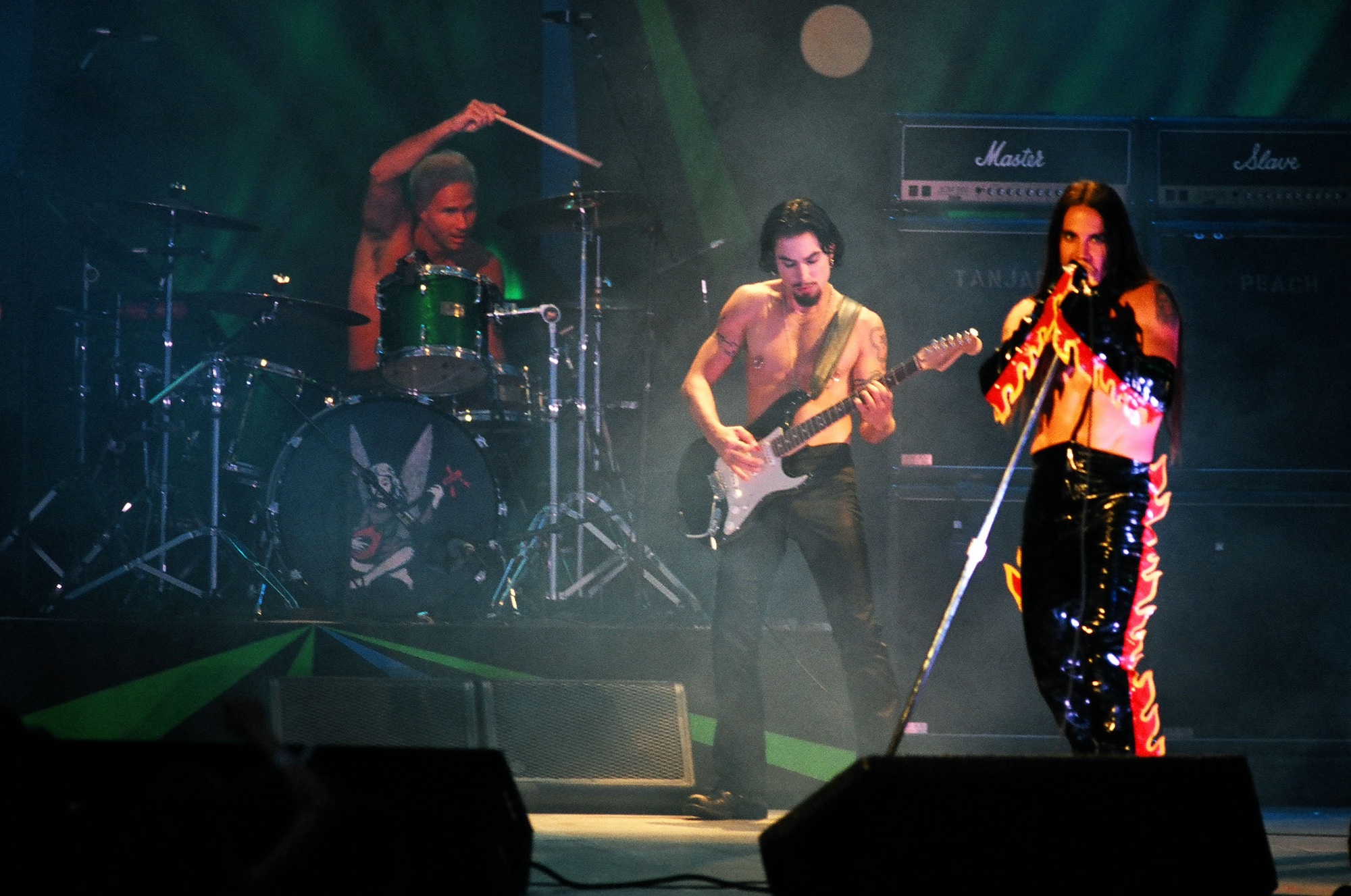
Though it didn’t come naturally to you, do you wish you’d been more open to that?
“I look back on those days, and I could have probably tried more to work in that fashion. But I didn’t know any differently, you know? My only experience was another way, and it wasn’t until years later that I realized why things were so difficult like it was.”
How do you look back on the making of One Hot Minute?
“I can summarize that record as an extremely difficult situation with players who were coming from different places, trying their very best to make it work. In some cases, we exceeded our expectations, and in other cases, we didn’t live up to the expectations that we had.
“If you look at it on paper, and I say this with all the love and respect, I wasn’t the right guy to fill that role. I’m grateful to have had the crash course in expanding my musicianship. The only problem is that I had to do it in front of the world, which made it uncomfortable. [laughs]
“I believe that I became a better guitar player as a result of it, but I don’t know that I would repeat that. In hindsight, maybe I was better cut out for Guns N’ Roses than I was the Chili Peppers. But at the time, the Chili Peppers were more from where I came from, but when it came down to getting in a room and musically trying to fit, it was another story.”
Many people wish the Chili Peppers would play more songs from One Hot Minute, but those songs are clearly not in John’s wheelhouse.
“Well, I think that with Josh Klinghoffer, they did revamp Aeroplane a time or two, which was nice. I was like, ‘Oh, that’s kinda cool that they’re doing that.’ But I have no idea what their perspective is on the whole thing. And when I see them, which is infrequent, we don’t talk about it.
“We’re just always like, ‘Hey, man, great to see you. How have things been?’ We just pick it up where we left off, but there’s no reminiscing. And it’s kinda odd to do right now because it was a difficult but valuable part of my career. I think once we get off the phone, I might skim through the record because I haven’t heard it in well over 20 years.”
I think you’ll be pleasantly surprised with how well it’s aged.
“I really love Warped, My Friends, and Transcending. There are songs where I love the A section, but I don’t love the B section.
“I look at it as a kind of interesting musical experiment. I don’t know that this will make sense, but it was like taking Dave Murray from Iron Maiden, throwing him into The Cure, and seeing what happens. [laughs] I’m too old and have been around the block too many times to have any ill feelings about it.”
Andrew Daly is an iced-coffee-addicted, oddball Telecaster-playing, alfredo pasta-loving journalist from Long Island, NY, who, in addition to being a contributing writer for Guitar World, scribes for Bass Player, Guitar Player, Guitarist, and MusicRadar. Andrew has interviewed favorites like Ace Frehley, Johnny Marr, Vito Bratta, Bruce Kulick, Joe Perry, Brad Whitford, Tom Morello, Rich Robinson, and Paul Stanley, while his all-time favorite (rhythm player), Keith Richards, continues to elude him.
You must confirm your public display name before commenting
Please logout and then login again, you will then be prompted to enter your display name.

![Red Hot Chili Peppers - My Friends [Official Music Video] - YouTube](https://img.youtube.com/vi/0kT5w27YxyI/maxresdefault.jpg)

![Red Hot Chili Peppers - Aeroplane [Official Music Video] - YouTube](https://img.youtube.com/vi/vV8IAOojoAA/maxresdefault.jpg)


